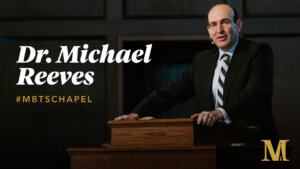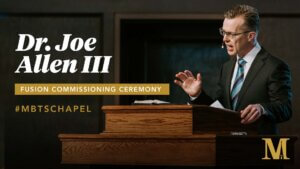A Profile of Luke Gorsett
Luke Gorsett is a Midwestern Seminary grad (M.Div 2017) who serves at Emmaus Bible Church in Omaha, Nebraska, a congregation in partnership with the North American Mission Board. Undergoing a 12-month church planting internship directed by Emmaus pastor Erik Raymond, Luke fills his ministry time preaching, discipling, counseling, and administrating, while preparing to plant a church in 2019. You might not know from his unassuming demeanor and clear-minded dedication that he left behind a promising career in pro baseball to pursue the Lord’s call into vocational ministry.
How did you know baseball could actually become a career for you?
I grew up with the beautiful backdrop of the Rocky Mountains and the crisp, thin air of Denver, CO absolutely perfect, in my opinion, for baseball. I was introduced to baseball at a young age, fell in love with hitting homeruns, and played nearly every day of my life. I got the sense I had a chance to play at higher levels when my first year in high school I made the varsity team and was awarded the league championship game MVP. But I entered the party scene in high school and nearly ruined my chances. My coach sat me down with my parents after Junior year and spoke of my poor reputation that was going to keep me off of any self-respecting college coaches team. God used this and other moral failings to wake me up. I got serious, and my reemphasis on training, discipline, and structure helped me become State player of the year my senior year. Because of my poor grades, and reputation I ended up going to a Junior College in Garden City, Kansas of all places. All there was to do in that town was play baseball. My second year there, I led the nation in homeruns and was recruited to play for the University of Nebraska who had made College World Series appearances 3 out of the past 4 years. It was clear by then; my plan was to play at UNL for a year and hopefully get drafted.
Tell us about your journey toward being an MLB prospect.
While playing for the Huskers, midway through the season I began talking to sports agents and MLB Scouts. They were already at our games to see my teammate, Joba Chamberlain pitch (1st Round Draft Pick of the Yankees) and others (Tony Watson, Dodgers) so they actually helped me get a lot of exposure. The season was going really well, I was on the Wallace Award Watchlist, leading the Big XII in homeruns etc. As the MLB draft was getting closer, a recurring back injury kept me sidelined for the Regional tournament. Because this was a recurring injury, and I was going to have to sit out the rest of the summer to heal, I figured a MLB team might be hesitant to take a shot on me. Ten MLB teams made me send them results of an MRI of my back to find out how serious the injury was. This led to some uncertainty on draft day. Just before the 7th round came along, the St. Louis Cardinals called to ensure that if they drafted me I would sign. I said yes. I was watching the draft board online and as it came to St. Louis Cardinals, my name appeared on the screen and my phone started ringing off the hook with family and friends. I reported to West Palm Beach, FL 2 weeks from that day. But the highest level I made it to in the minor leagues was AA.
Tell us about how you came to faith in Christ.
While I was playing Minor League baseball in 2007 through, I wandered into baseball chapel on a Sunday morning. I was open to the Bible again, so my dad gave me an audio Bible to listen to while I was on the bus traveling to different towns. This was the first time I ever read the Bible. This lead to an interest in Christianity but I had no idea where to begin, or what it was all about. In 2008, I was playing baseball for a team in Palm Beach, Florida, and my bus driver gave my wife a solid book on the gospel. It was really the first time I had Scripture explained in its context. The driver said he was recently given the book from another baseball player in the Marlins organization. I checked the schedule and we were going to be playing the Marlins in a week, so I figured I’d go up to the guy and talk with him. His name was Daron Roberts. He cheerfully asked my wife and I to dinner after the game. During that dinner we were amazed to meet what seemed to be a “super Christian.” This guy knew his Bible and he leaned on it. He answered all our questions with Scripture. He said the word “gospel” often, but we had no idea what that even meant. We seriously had to go home and Google it!
Daron told us the most important thing we needed to hear: that Christ’s coming to earth to die on a cross wasn’t so that we could have a materially blessed and successful life, but that we might have our sins forgiven and be reconciled to God now and forever. By God’s grace both our eyes were opened to this truth. We believed, repented of our sins and false understanding of the gospel and our lives were forever changed. We went to his church that Sunday and for the rest of the season until we moved back to Omaha for the offseason. Both Daron and his pastor, Jerry Wragg, helped us find a church in Omaha where we were baptized and became members.
When and how did you decide seminary and training for vocational ministry was for you?
My passion was to be trained in the original languages and receive essential tools to serve the church for a lifetime of ministry. I put together a 6-8 year plan of what it might look like for me to remain on staff as a pastor and chip away at seminary online. An opportunity arose in our church for me to step away from full time ministry to pursue seminary full-time on campus with the affirmation and support from my church. The proximity of Midwestern to Omaha, along with Dr. Jason Allen’s article on the benefits of residential seminary helped me decide on Midwestern.
How would you say your Midwestern experience benefited you?
I loved my time at Midwestern. As everyone knows, the emphasis there is “For the Church,” but it became very clear to me right from the get go that they are for the church because Jesus is for the church and means to get glory through his church. Jesus Christ and his gospel is the undercurrent of everything done on the Midwestern campus.
Not only were the professors knowledgeable they also exuded a passion for local church ministry. They were all involved in local churches, either pastoring, teaching Sunday school classes or leading small groups. Many of them went to different churches which helped bring different church perspectives into their lectures. Most of my professors stayed after class and talked with students. Some even went to lunch and dinner with me. I participated in small group book studies with professors and other students in between classes.
One of the coolest experiences was making some friends with other students who became study buddies. Little did I know that both guys were Greek and Hebrew gurus and the top students in their class. They pushed me further than I ever would have gone on my own. These guys are life-long friends and we will keep in touch and pray for each other as we enter full time ministry.
The most encouraging thing about Midwestern is their trajectory. I will continue to support and send church members to Midwestern not just for the quality education and experience but to be a part of this revitalization that prayerfully won’t stop in the seminary but will influence SBC churches for generations to come.


